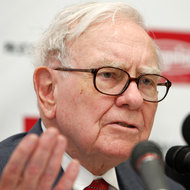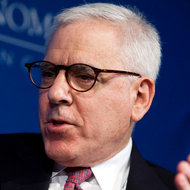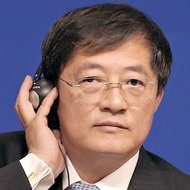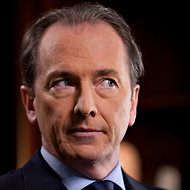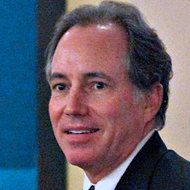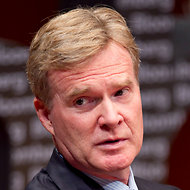The remarks, which came at a House communications subcommittee hearing, took aim at one of the top priorities of Julius Genachowski, the F.C.C. chairman: to make available more unlicensed airwaves, or spectrum, to open congested mobile broadband networks and to use in Wi-Fi hot spots.
In September, the F.C.C. proposed freeing 12 to 20 megahertz of spectrum for those unlicensed uses. The unlicensed space on the electromagnetic spectrum would also be used as “guard bands.” Those are areas that border segments of airwaves that are used by cellphone companies, broadcasters and other communications entities; their purpose is to limit interference from transmissions on nearby airwaves.
Mr. Genachowski defended the commission’s plans. “Unlicensed spectrum has a powerful record of driving innovation, investment and economic growth — hundreds of billions of dollars of value creation for our economy and consumers,” he told the committee on Wednesday.
He pointed to Wi-Fi networks, which operate on unlicensed airwaves on the electromagnetic spectrum, as an example of innovation that has generated “hundreds of billions in tax revenues” and made the United States a leader in the use of unlicensed airwaves.
But Representative Greg Walden, an Oregon Republican, who is chairman of the panel, said the law that gave the F.C.C. the ability to conduct “incentive auctions” of newly available spectrum required “maximizing the proceeds from the auction.”
For the F.C.C. to obtain the highest price for the spectrum it sells, it should limit the size of guard bands, Mr. Walden said; he said the six-megahertz minimum size proposed by the F.C.C. was unnecessarily fat.
Up to $7 billion of auction proceeds is earmarked to help build a nationwide public safety communications network for first responders. The spectrum for the auctions is supposed to come from television broadcasters who voluntarily give it up or move their position on the airwaves in exchange for some of the auction proceeds.
“I support the use of unlicensed spectrum to foster innovation” for relief of congested broadband, Mr. Walden said. “What I cannot support,” he added, “is the unnecessary expansion of unlicensed spectrum in other bands needed for licensed services, especially at the expense of funding for public safety.”
The F.C.C.’s five commissioners, who all testified before the subcommittee on Wednesday, are split 3-2 along party lines over the issue of unlicensed spectrum.
Commissioner Robert M. McDowell, a Republican, said it would be premature for the commission to reserve newly available airwaves for unlicensed use.
Instead, the commission should set aside the “white spaces” between broadcast television channels for unlicensed use, he said. White spaces are similar, but smaller, guard bands in the part of the spectrum dedicated to broadcast television that are intended to minimize interference between stations.
“At this early stage in the incentive auction process,” Mr. McDowell said, “it is not apparent that we should stop the progress well under way in the TV white spaces arena to create a solution for a problem — an alleged shortage of unlicensed spectrum in lower spectrum bands — that may never exist.”
The F.C.C.’s plans for unlicensed spectrum received support from Democrats on the subcommittee, including Representative Henry A. Waxman of California. Mr. Waxman said the way unlicensed spectrum would be set aside and used were settled in negotiations on the Public Safety and Spectrum Act, which was enacted this year.
“I am troubled by attempts by some to relitigate issues that were resolved earlier this year, when the bill passed Congress with widespread support,” Mr. Waxman said.
Republicans on the subcommittee also sparred with Mr. Genachowski over whether the F.C.C. should limit the amount of spectrum any one company could own. That would limit the potential buyers of some spectrum to be auctioned. Supporters of restrictions say they are one of a few ways to give smaller cellphone companies the ability to build nationwide networks.
Separately, the F.C.C. said late Wednesday that it had agreed to allow Dish, the satellite television company, to use spectrum that it controled for mobile broadband; previously, the airwaves were to be used only for satellite transmissions. The change, which was expected, greatly expands the value of the spectrum and could allow Dish to enter a mobile broadband partnership with another wireless company.
Article source: http://www.nytimes.com/2012/12/13/business/republicans-tell-fcc-not-to-give-away-airwaves.html?partner=rss&emc=rss
